When the word “health food store” is mentioned, I always picture two types of people: hippies and elitists. Yes, I shop at a health food store and I’m neither.
I remember years ago, before our switch to real food, receiving monthly sales flyers from the local health food store. I always skimmed through thinking, “Who would shop there?” The thought of shopping at a specialty health food store appeared far out of my budget and normal non-hippie lifestyle.
A few years later our family started a shift towards real food and a problem arose. I couldn’t find anything to buy at my conventional big chain grocery store. I soon found myself making weekly drives to that very same store I once mocked. The local health food store.
It was love at first sight.
I found a world of abundant organics, locally sourced food and products, a full juice bar, non-GMO labeling. Pure foodie heaven.
Our food needs have drastically changed and therefore my shopping habits have changed. I can save money and shop at a health food store. All while feeding my family nourishing food.
The local big chain grocery store sells many “organic” foods. Let me rephrase that, “organic” food -like products. Most are nothing more than glorified junk marketed as healthy with an organic label. There is a limited selection of organic olive oil, oats, spices, yogurt, and produce, as well as Kerrygold butter, however, all sold for a much higher cost than the specialty health food store.
How can a specialty health food store actually sell food for less than the big conventional chains?
I’ve thought long and hard, asked around, and read up. Here’s my conclusion:
Big conventional stores know customers want “healthier” options. Some stores, like the one near me, have even created “Greenwise” or healthier sections with these products. While they’ve made the effort, many of the “good” products just don’t have the same turn over as the junk. And the organic produce is not as popular as conventional.
Now, enter the health food store. People go to a health food store looking for “better” products, alternatives to the big conventional stores. This means people are buying the good products, the turnover is higher. This also means the health food store can afford to put items on sale.
What to Buy At a Health Food Store:
I purchase most my dairy (raw) and fruits and veggies through my local food c0-op and other specific items from Costco. Below, are the items I purchase (a save on) at my health food store.
Dried beans, sugar, rice, nuts, dried fruits, nut butter: This is one of my favorite sections, the bulk section. Large bins line the wall with many choices for various beans, rice, dried fruits, flours, popcorn, and more. Because these items are purchased in bulk, I am able to spend less on something like pinto beans than if I bought a prepackaged bag or a can.
I buy: peanut/almond butter, white beans, pinto beans, black beans, kidney beans, lentils (various kinds), barley, sunflower and pumpkin seeds, dried cranberries (sweetened with apple juice), chia seeds, coconut flakes, chocolate chips, and sucanat.
Cheese: I buy some cheese through my local food co-op. If I need more than just cheddar I visit the health food store. My local store carries a huge variety of organic and grass fed cheese ranging from ricotta to feta and everything in between. I can find cheese from big organic companies like Organic Valley and smaller locally-owned companies.
I buy: Feta, Parmesan, and a Gouda by Kerrygold. I pay $4 for an 8 oz. block of Kerrygold Gouda at the health food store. At my local conventional store, I would pay $6 for the same block.
Dairy: I buy most of my dairy (milk, cream) through my co-op. If you’re not ready to go raw or can’t find a local co-op or farm, the health food store is the next best place.
Pasta: Conventional stores sell a lot of pasta. Most are simply enriched white flour products along with chemical additives. The health food store carries: whole wheat, brown rice, quinoa, and other pasta choices. I often find these products on sale.
Spices: If I only need a small amount of a spice, I can simply go to the bulk organic spice section and scoop out as little as needed and pay by the ounce. Saving money without the waste.
I also buy canned tomatoes (BPA free), organic condiments, vinegar, olive oil, pastured meat (when needed), along with many other ingredients.

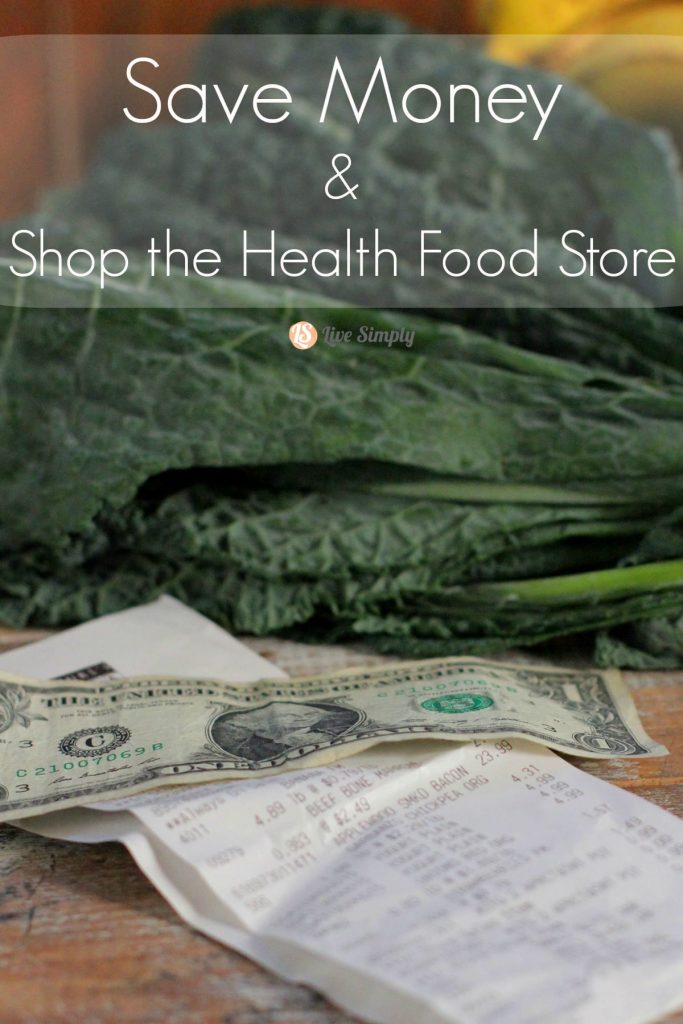
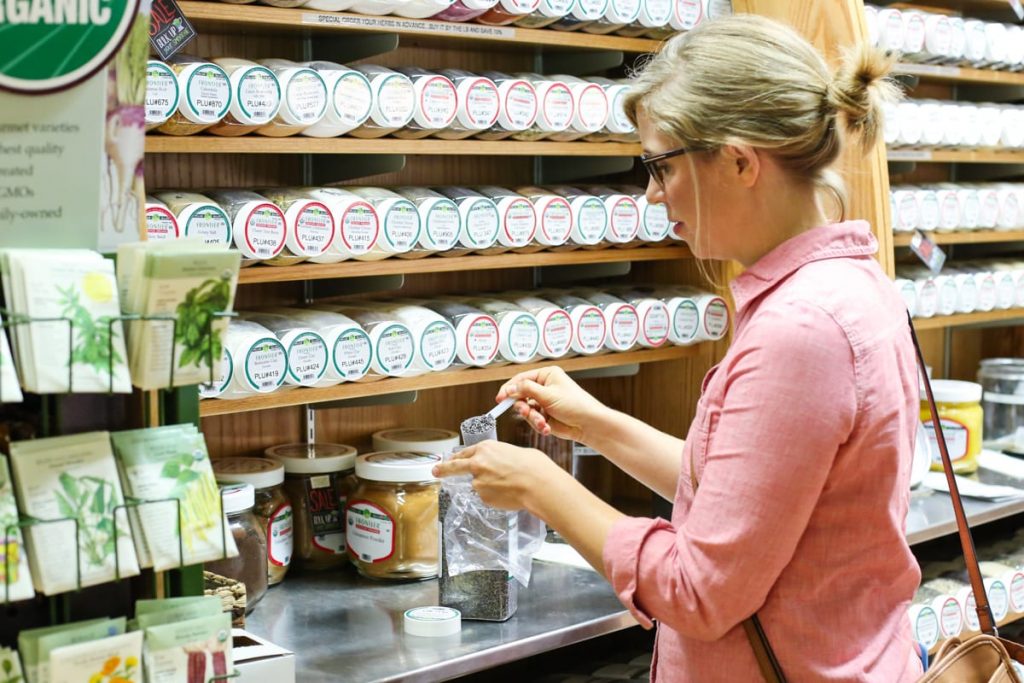
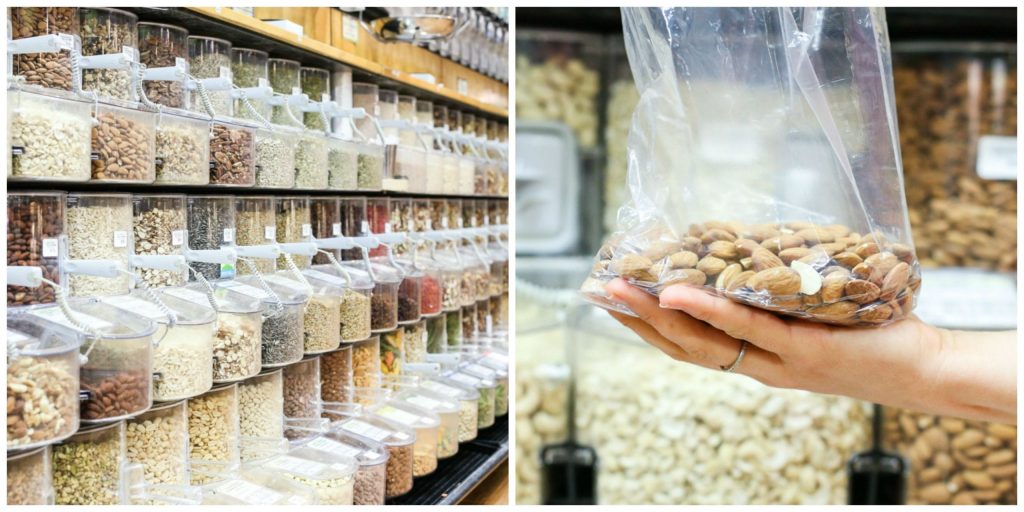
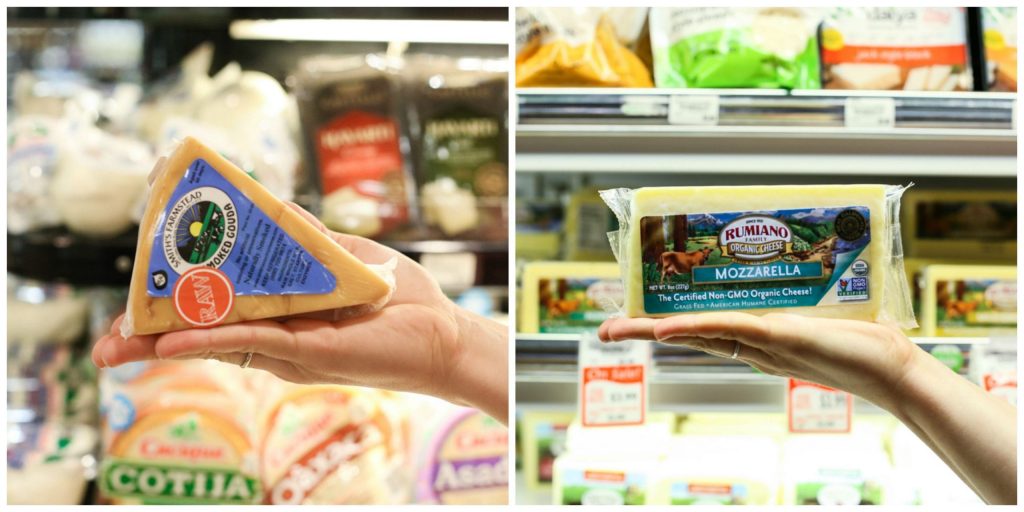
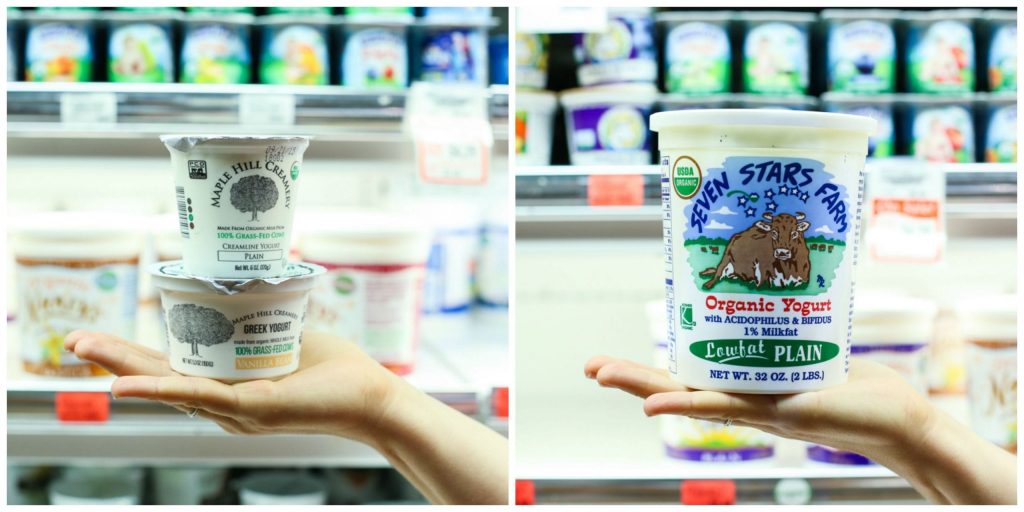
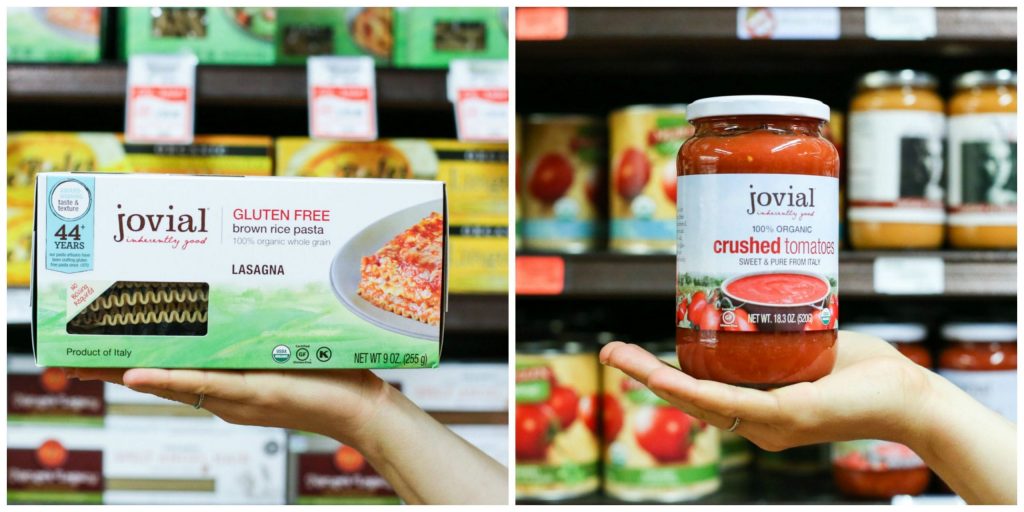
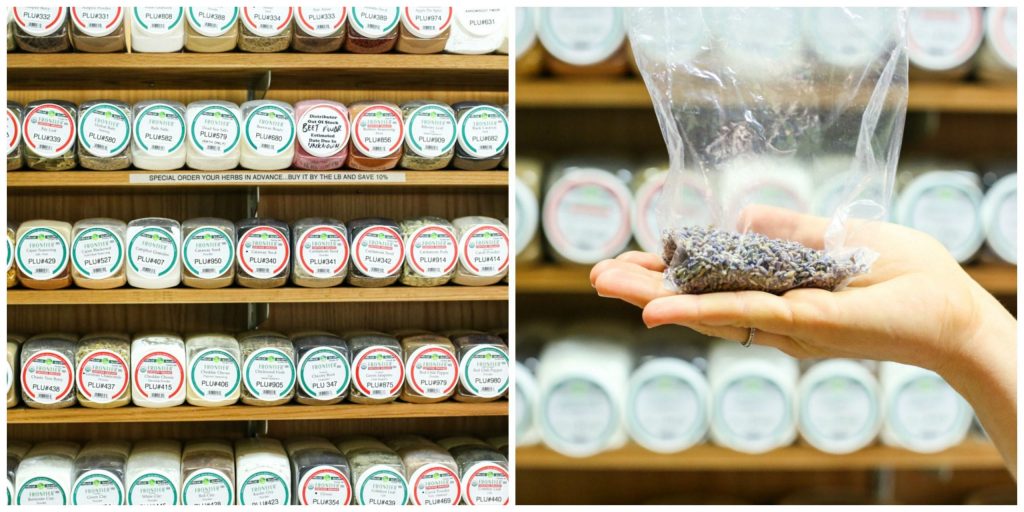
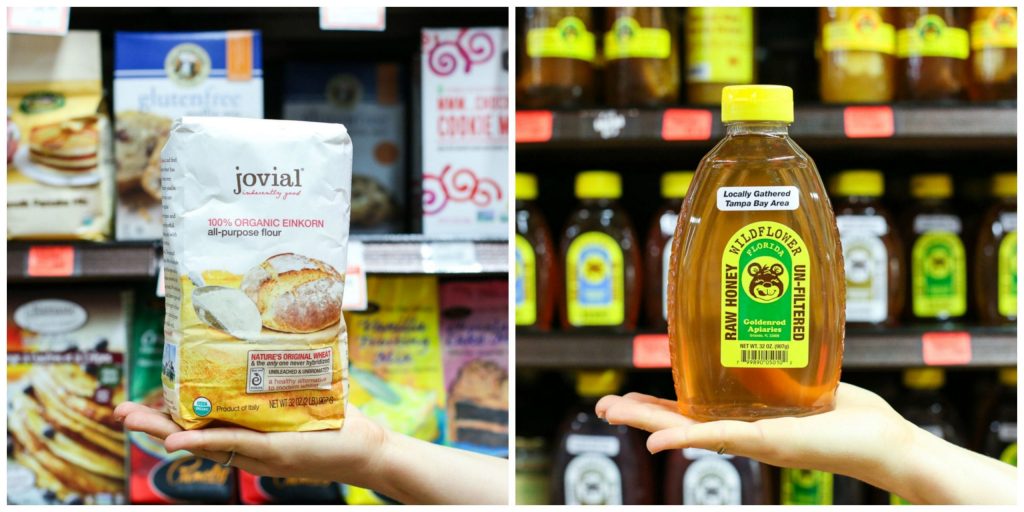
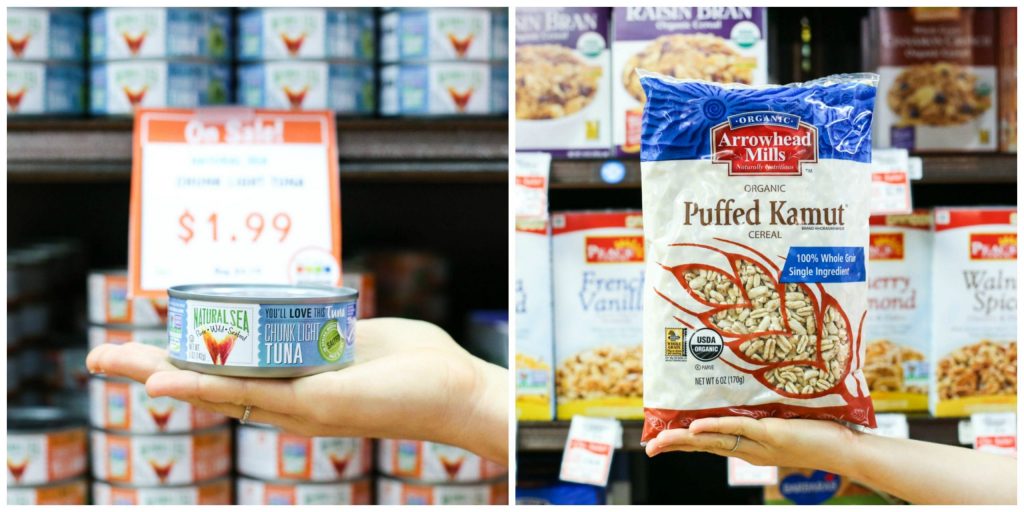
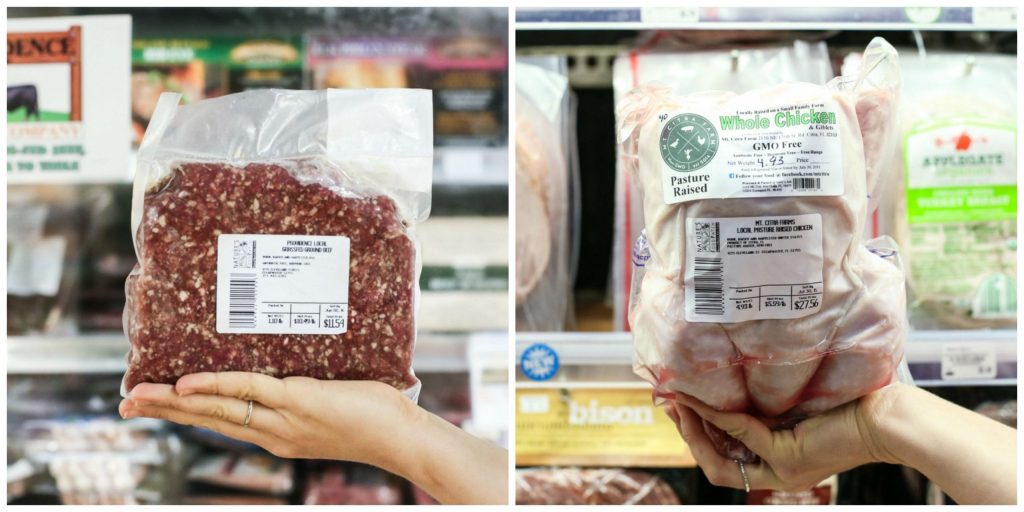
Great post! I have mostly preferred to use organic foods it is best for our health and improve nutrition in our body overall thanks to this great stuff of words.
I agree that you want to keep an organized fridge when you are trying to eat healthily. It would be smart to organize your fridge because that way, you would know what you need to buy. It would also be smart to find a quality health foods store that is close to your home to help buy from.
What is the name of your health food store that you shop in? Love reading your posts. Just started eating real food last year and removing toxins from our home this year. Thank you for your help.
Hey Cathy, I’m so glad the posts are helpful! I shop at Nature’s Food Patch: http://www.naturesfoodpatch.com/retailer/store_templates/shell_id_1.asp?storeID=A5PJLP3ME3S92N5800AKHLBD34WS3RL1.
It’s very interesting to read this post. Because over here in Europe (or Switzerland to be exact) it’s very different. The two big grocery chains Migros and Coop carry a lot of organic products, certified by the same agencies (organic rules are very strict here) but since Switzerland is a) a small country with a small market and b) the two big grocery chains buy “in bulk” they’re a lot cheaper. I buy everything they carry there and shop the rest at a health food store. Because not everything is available. But grains, nuts, fruits, vegetables and dairy luckily are so there’s not much left. (Fermented soy sauce, coconut flour and coconut milk are the only things I can think of).
With all you do to keep your family healthy you still do laundry with conventuals products. You should look it using soap nuts and Nellies oxygen brighter, cost is way less and it is much better for your skin and the environment , no chemicals in the water that is discharged and your clothes are cleaner and no need for fabric softener
Thank you for the suggestions. I have actually used soap nuts (our co-op sells local soap nuts) a number of times previously as well as made my own laundry soap. As my kids have gotten a bit older and are constantly outside and getting dirty I have found the soap nuts and my soap recipe just didn’t clean the stains as the chemicals do. Thank you for the encouragement. I may just have to give them another chance!
Thank you for the answer to my comment. It is nice to know you actually read the comments.
Of course 🙂 Thank you for commenting 🙂